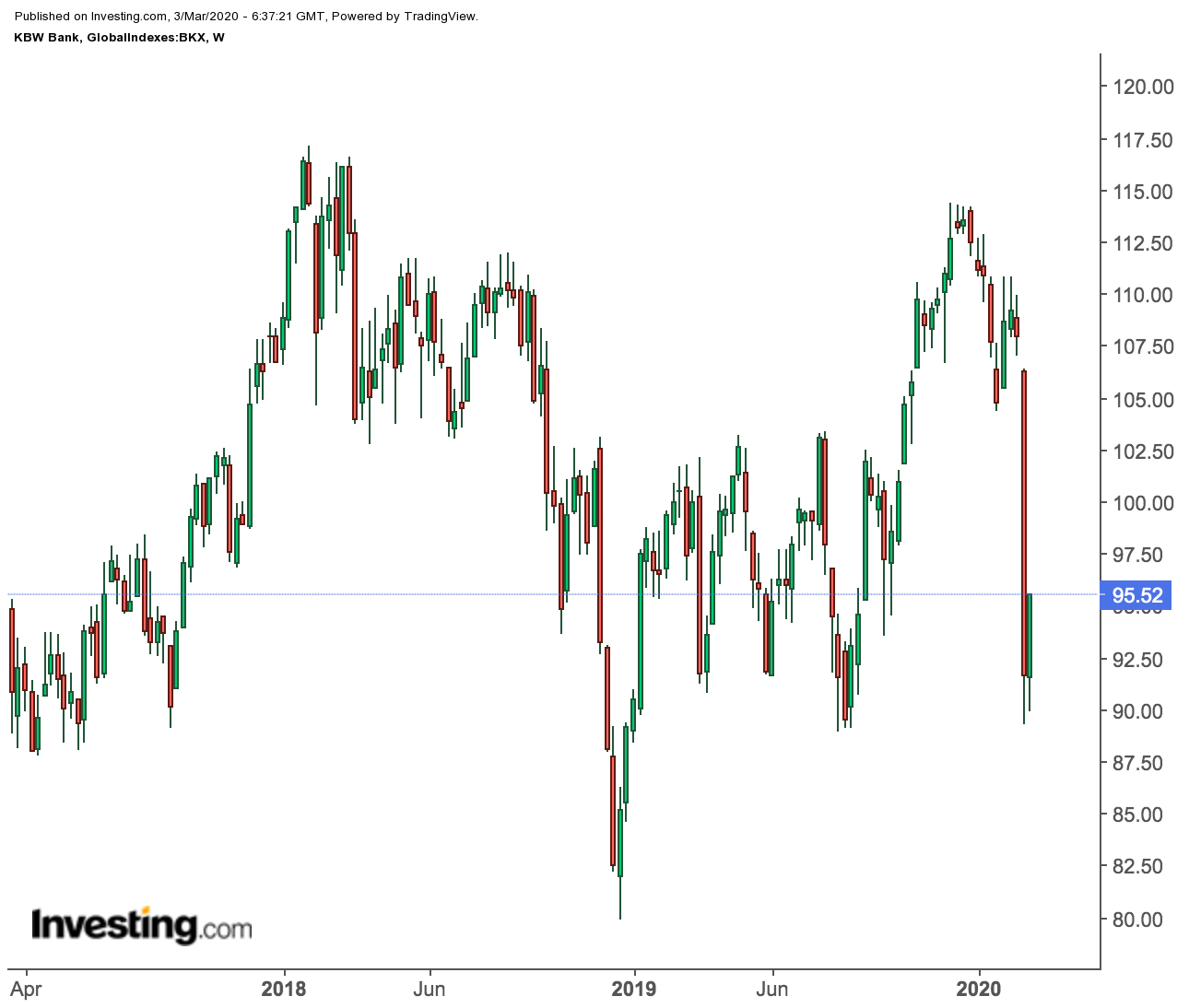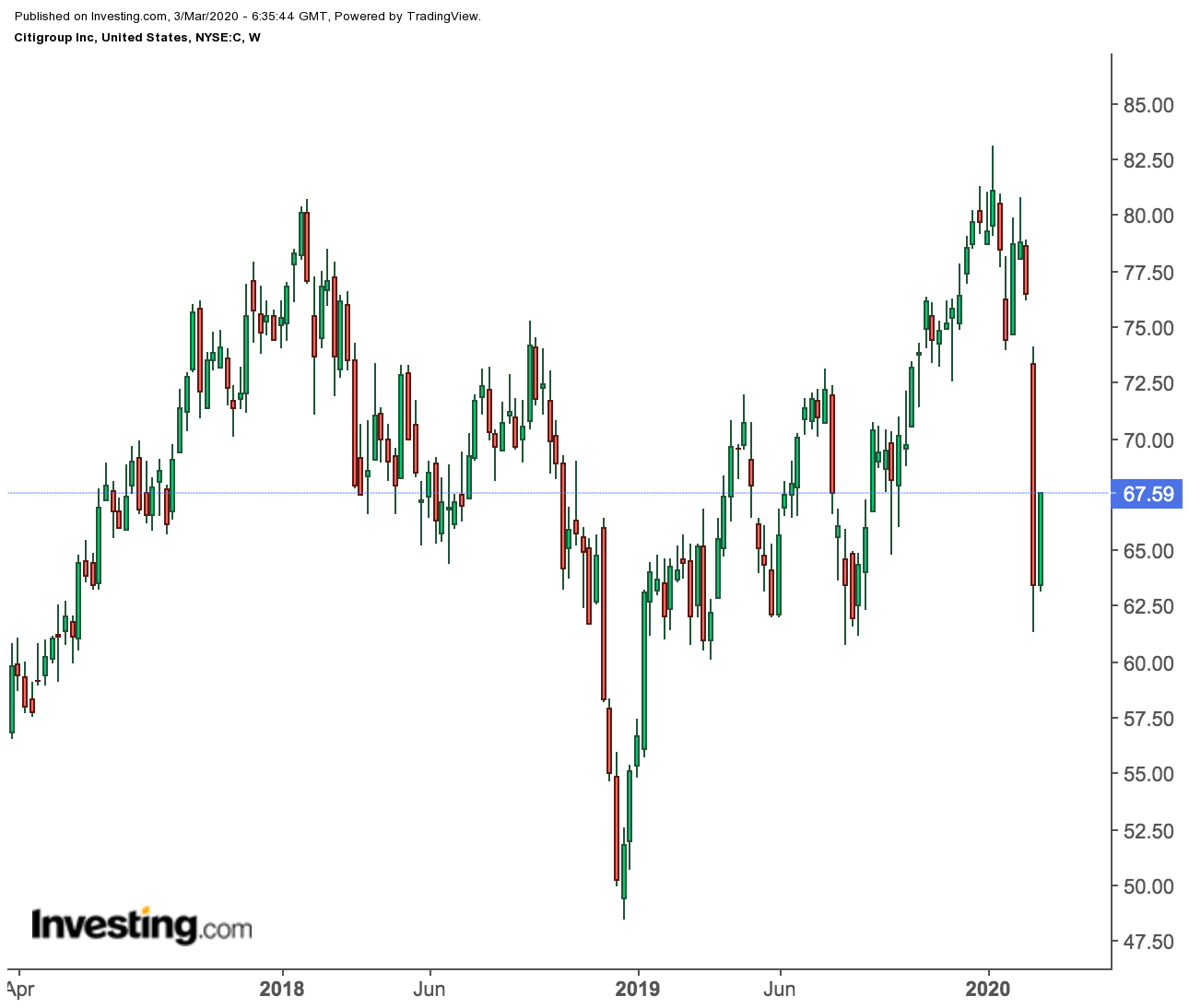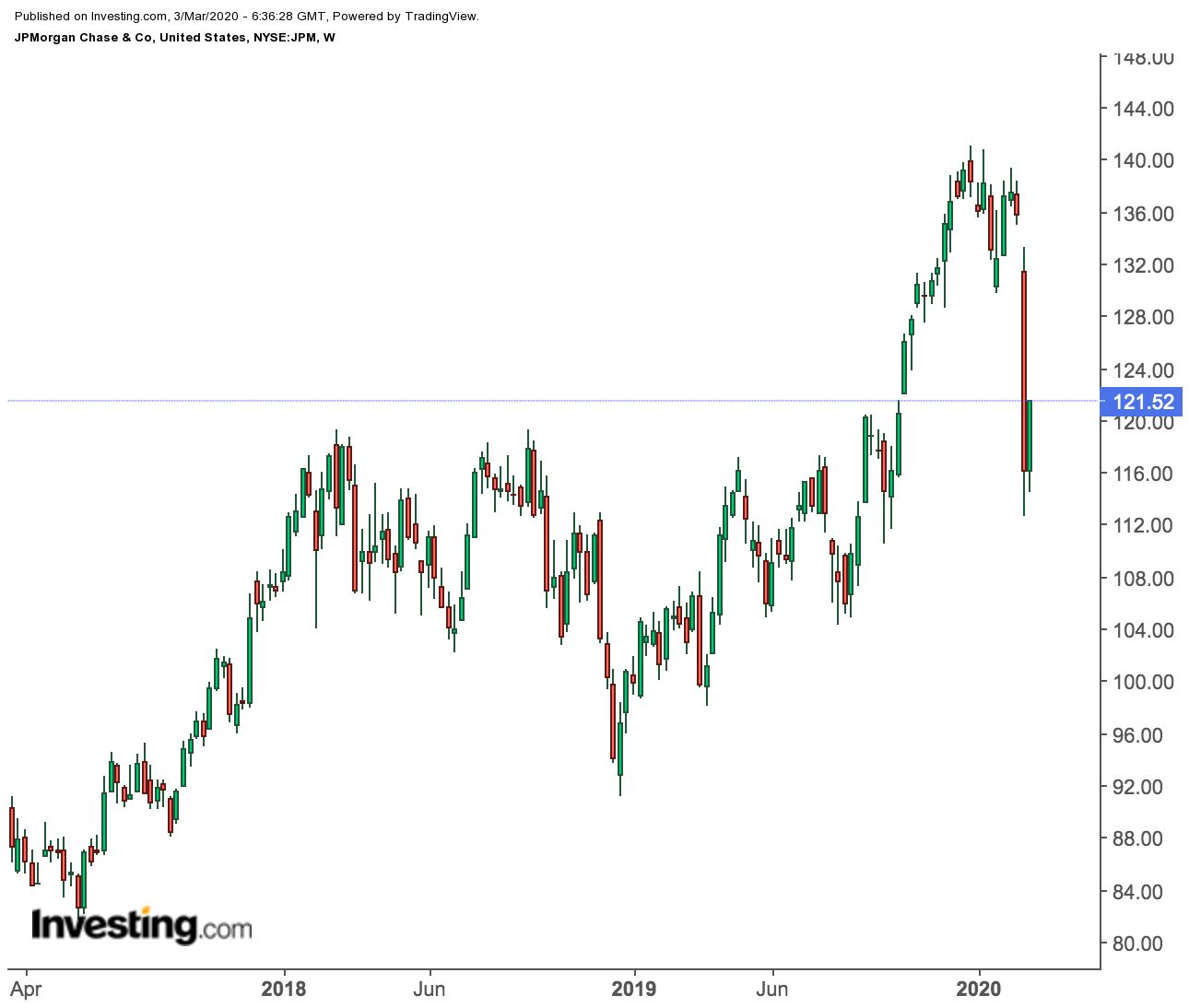As the threat to the global economy from the coronavirus outbreak prompts suggestions that central banks are ready to cut interest rates, it's becoming clear that one of the sectors at risk from the fall-out is banking.
A fall in interest rates will reduce banks' income on products, such as mortgages, personal line of credits and credit cards, while an economic slowdown or recession will force corporate borrowers to cut spending, or postpone their expansion plans.
That’s the reason that the KBW Bank Index has sunk 18% so far this year, compared with an 8.1% decline in the S&P 500, as investors see lenders among the biggest losers if the central banks globally start cutting rates to stave off recession.
Stocks tried to stage a rebound yesterday after indications that central banks may attempt to stabilize markets and shield economic growth from the impact of the coronavirus after a week-long sell-off. The yield on the benchmark 10-year U.S. Treasury note plumbed new lows, falling as low as 1.031% overnight, from 1.127% Friday.
Looking at banks' valuations, it’s not difficult to gauge investors’ mood. The market is valuing bank shares as if the economy is headed toward definite recession. The KBW price-to-earnings ratio of about 9.5 is near the lowest levels versus the S&P 500 since 2008.
Sour Mood
Goldman Sachs analyst Richard Ramsden wrote in a note that current bank valuations were “discounting a 25% probability of a mild recessionary scenario.” Adjusting for recent stock moves, three interest rate cuts by the end of 2020, an assumption of no loan growth this year and modeling a 10% shock to capital markets revenue results in a potential 11% reduction in 2021 earnings, he said.
But the sour mood around banking stocks doesn’t mean that investors should paint all the names with the same brush. Shares of some of the largest lenders have become attractive after the massive sell-off of the past week. In this space, we particularly like Citigroup (NYSE:C) and JPMorgan Chase & Co (NYSE:JPM).
After falling about 18% since the start of 2020, Citigroup stock was trading at around $67.6 a share at yesterday's close, while JPMorgan closed at $121.5 after taking a 15% hit this year.
While the weakening economy is certainly bad for their M&A, trading and corporate lending businesses, both these banks have large and diversified portfolios that put them in a much stronger position to withstand economic shocks than they were at the time of the 2008 financial crisis.
According to Piper Sandler analyst Jeffery Harte, who raised JPMorgan to overweight from neutral with a price target of $149, the bank is a “relative winner in any macro-environment." He added in a note that he wasn’t calling a market bottom, but rather was highlighting a potential outperformer.
Our view is that both JPM and Citi are well-prepared to cope with any downturn due to their sustained cost-cutting and re-balancing of portfolios over the past decade. Their efforts are beginning to pay off and both JPM and Citi have been producing strong growth in revenue and profit over the recent quarters, as well as offering a decent dividend yield, with JPM at 3.1% and Citi at 3.2%.
Bottom Line
It's certainly not a good time to go long on banking shares when macro headwinds are gathering pace. But in the case of prolonged weakness, we recommend investors get ready to cherry pick some solid banking stocks. For such investors, we like both Citi and JPM, given their diversified portfolios, growing dividends and improving balance-sheet quality.
